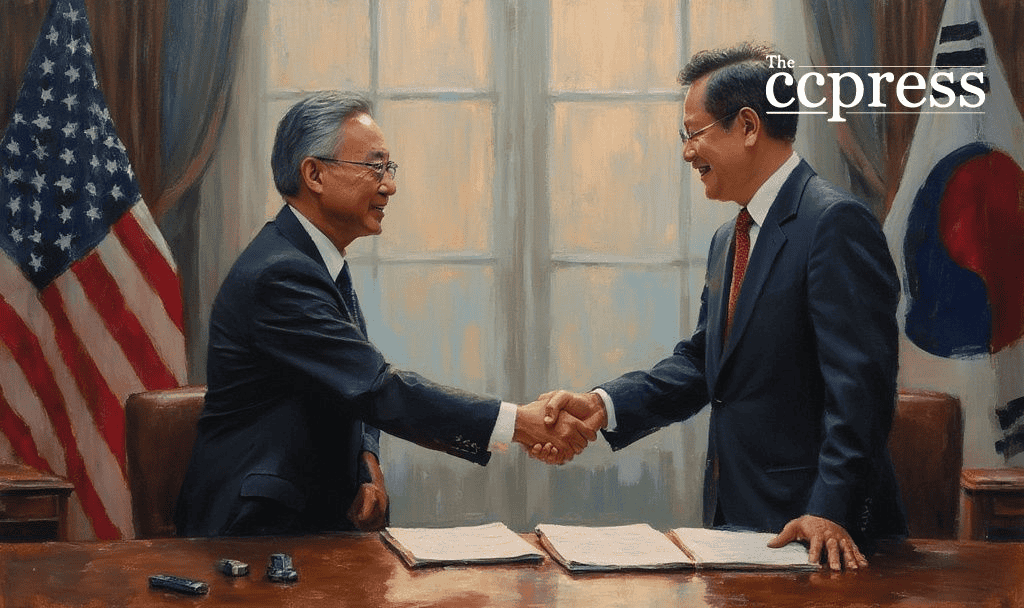- Acting President Han Duck-soo leads trade negotiations.
- No direct crypto market impact observed.
- Industry aims for increased U.S. imports.

Involving key leadership changes and trade dynamics, this event marks a significant step in bilateral trade relations, potentially affecting industries and economies on both sides.
The decision to eliminate trade barriers was announced by Han Duck-soo, who assumed the role after the impeachment of former President Yoon. U.S. tariffs led to direct negotiations between South Korean and U.S. officials. Industry Minister Ahn Duk-geun and Trade Minister Cheong In-kyo are pivotal in the talks, directly engaging with U.S. Commerce Secretary Howard Lutnick and U.S. Trade Representative Jamieson Greer.
The trade concession aims to mitigate U.S.-imposed reciprocal tariffs following complaints regarding trade imbalances. While South Korea’s move did not immediately impact major cryptocurrency prices, ongoing market and regulatory evaluations continue. No substantial volatility was recorded in BTC and ETH prices on related exchanges.
“We will not fight back… I want to find solutions which are more win-win for both, rather than taking their actions as the objective against which we should fight back.” – Han Duck-soo, Acting President of South Korea
Potential broader implications include shifts in trade policy between the nations, with focused attention on non-tariff barriers. As the negotiations advance, industry cooperation might see increased purchases of U.S. goods. Thorough policy monitoring is crucial for understanding long-term effects on both traditional and crypto markets. Historical data suggests that past U.S.–Korea negotiations rarely disrupted crypto markets significantly. However, this latest diplomatic approach may shape future trade frameworks.
